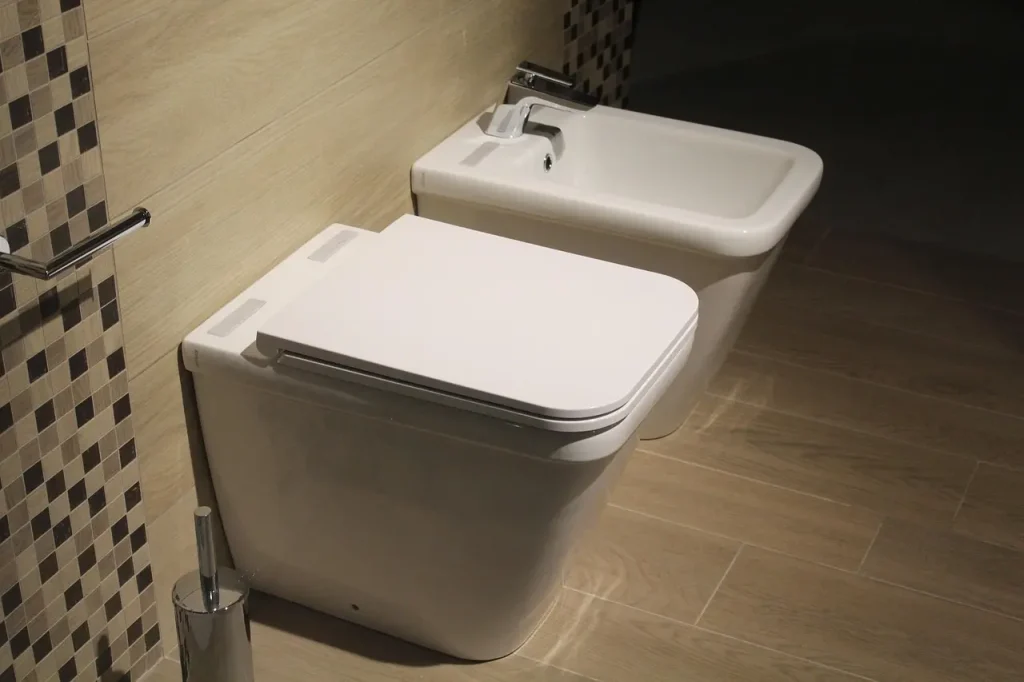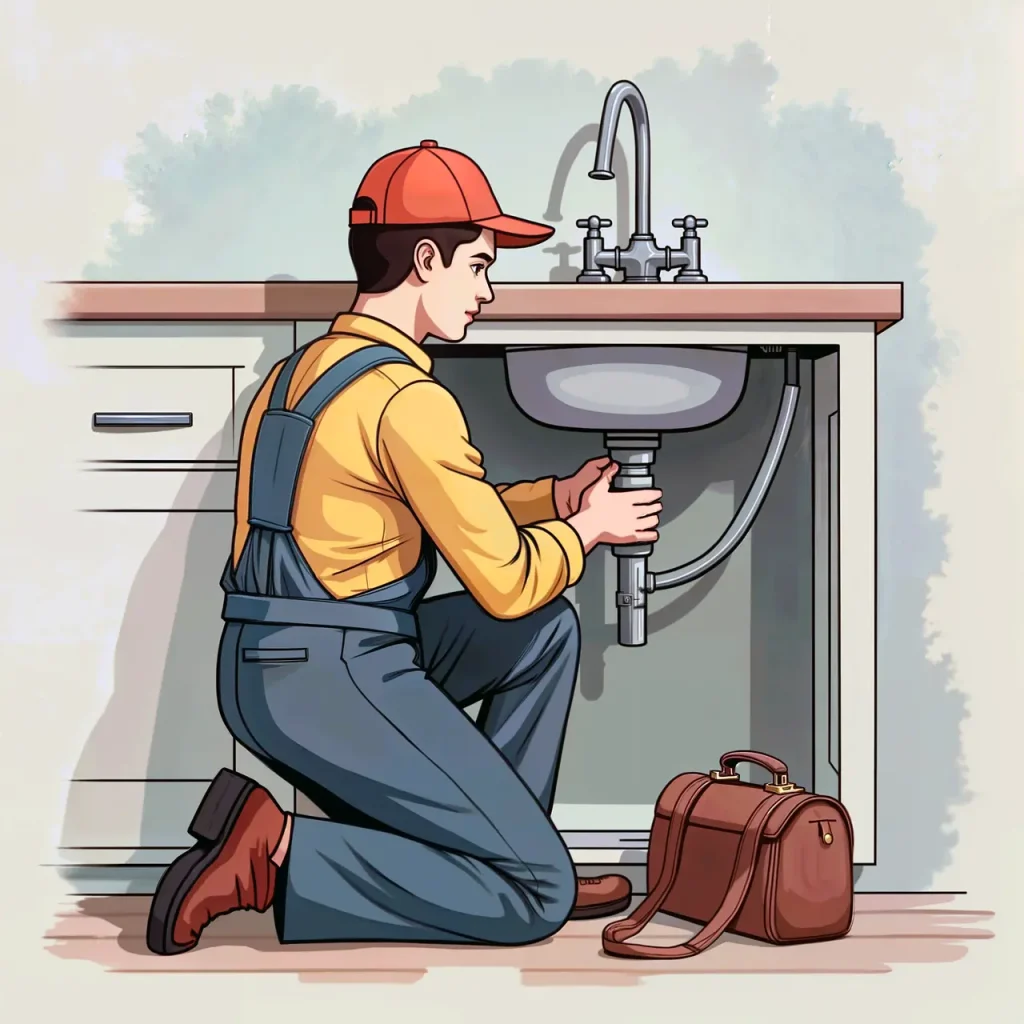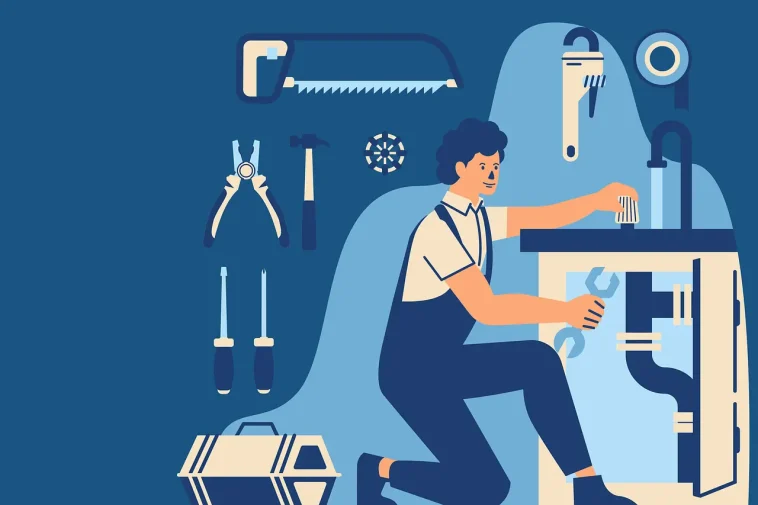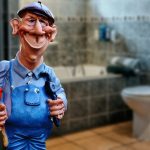Plumbing is among the crucial systems in every house; however, more often than not, a lot of home owners make mistakes that eventually cost them much more in terms of costly repairs and water. Some minor plumbing issues can get blown out of proportion if not tackled properly.
Understanding the most common plumbing mistakes will help homeowners make sure their plumbing systems function well and prevent expensive repairs. Whether it’s a DIY repair, hiring a professional, or just plain old routine home plumbing maintenance, knowing the most common mistakes is essential. This saves you from wasting unnecessary time and money through early caution and routine maintenance.
Ignoring small leaks
The most common mistake people make when dealing with plumbing is ignoring small leaks. Though the leaky faucet or slow leak beneath the sink may seem like nothing, over time it wastes gallons of water and increases your utility bill.
More importantly, though, persisting moisture causes mold growth and structural damage. Even small leaks need to be fixed the moment they are detected to avoid bigger, costlier problems.
Using Too Much Drain Cleaner
Chemical drain cleaners work rapidly in clearing the clogged pipe; overusing it might result in doing more harm than good. Many commercially prepared chemical-based drain cleaners include corrosive elements in their formula, which eat away at your pipes. Over time, these eaten-away portions could create small leaks or other damage to your pipes.
Many minor blockages are caused simply by accumulation and can be fixed using a plunger without needing chemical assistance. Even homemade concoctions of baking soda and vinegar work wonders. If the clog problem persists, call a plumber.
Flushing the Wrong Items Down the Toilet
Toilets are only designed to handle human waste and toilet paper, period. Common mistakes people make include putting items such as baby wipes, paper towels, cotton swabs, and other feminine hygiene products into the toilet, which block the pipes and cause back-ups.
Many of those so-called “flushable” products do not degrade as one might expect, either, and create very costly repairs. Dispose of items not meant for flushing into the trash where they belong.

Over-Tightening Plumbing Connections
Anytime plumbing fixtures are installed or fixed, the connection should be tightened enough to give a decent seal. Over-tightening the fittings and bolts will result in cracked pipes, stripped threads, or damaged rubber gaskets-all of which facilitate leaks over time.
If unsure how tight any connection should go, consult a manufacturer guideline or a professional plumber like Bumble Bee Plumbers.

Not Shutting Off the Water Supply Before Repairs
The most preventable plumbing errors involve failing to turn off the water supply before attempting repairs. From replacing a faucet to repairing a leak in the pipe or unclogging your drain, a failure to turn off the water could result in massive water damage.
Before starting any work, locate the relevant shutoff valve and turn it to avoid sudden flooding.
Insufficient or Incorrect Application of Plumbers’ Tape
Plumbers’ tape, also known as Teflon tape, seals the threads on pipes and thus prevents leakage. However, this tape should be applied the right way for it to work effectively. It should be wrapped in the direction of where the threads will tighten for the seal.
Too little and too much also can cause leaks or make it hard to screw connections.
Installing Pipes without Proper Slope
In the case of do-it-yourself plumbing installations for homeowners, one of the essential mistakes made is the installation of drain pipes not with the right slope.
Drainpipes must have a proper slope to let gravity take away all the waste; if the slope is very flat or too steep, it might lead to slowing down or blockage. Proper installation definitely calls for accurate measurements, and once in doubt, then consider referring to a professional plumber always.
Incorrect Mixing of Different Types of Pipes
Mixing different pipe materials with un-matched connectors creates environments conducive to both corrosion and leaking. Where various metals, coming in contact in a wet scenario, galvanic corrosion will cause weaknesses over time. Connect different types if the job absolutely requires.
Using the Wrong Tools to Fix
Most plumbing problems involve using some special tools, and using the wrong tool may cause more damage. Using pliers on a fitting when a pipe wrench should have been used will strip the fitting. And using an ordinary screwdriver on a valve for plumbing may break its mechanism.
Buying the right tools—a pipe wrench, basin wrench, and augers—will make doing your own repairs easier and will prevent unnecessary damage.
Lack of Regular Maintenance
One of the most common mistakes made by homeowners is neglecting routine plumbing maintenance. Pipes, water heaters, and fixtures all need periodic inspections to find problems before they become major issues.
Simple tasks such as leak checks, flushing the water heater, and cleaning aerators on faucets can go a long way in prolonging the life of your plumbing system. Scheduling an annual plumbing inspection with a professional can also prevent costly repairs in the future.
Trying to Make Complex Repairs Without Experience
While basic DIY skills can help in performing simple plumbing issues, complex repairs without the right experience invite serious problems. Repairs such as water heater replacement, installation of new pipes, and sewer line repairs are specialized jobs that need to be handled by professional plumbers. If you are not sure about any repair, then it is best to seek professional help rather than trying to fix it yourself and making things worse.
Avoiding these very common mistakes in plumbing can save homeowners time, money, and frustration. Be it fixing minor leaks on time, using the proper tool, or even knowing when to call a professional, correct care for plumbing is crucial in maintaining a safe and efficient home. With just a little vigilance and best practices, homeowners can prevent costly plumbing problems; this will ensure their plumbing system runs smoothly and efficiently for years to come.




